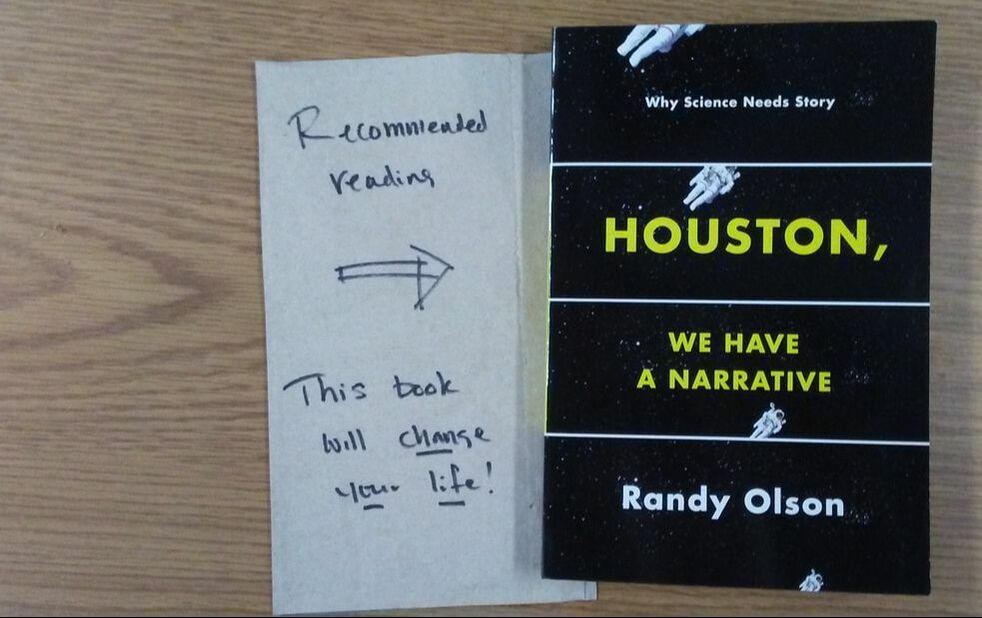|
And. But. Therefore. These three words give a clear format for telling a narrative, writing a scientific abstract, or organizing a conference talk. After reading "Houston, We Have a Narrative", I have been incorporating this structure into my scientific work. Have you tried out 'ABT'?
Some scientists may shy away from visualizing their research as a story to be told, but Olson argues that a narrative is what humans are built to respond to. He defines a narrative (p 182) as "a series of events that happen along the way in the search for a solution to a problem". A narrative is not a fictional piece of work, and it doesn't have to be non-scientific. I'd recommend checking out the book! If you attended the Entomological Society of America meeting in Vancouver (Nov. 2018), maybe you saw Randy Olson's plenary talk. He explained a newer concept he developed called the 'Narrative Index' where he calculates the ratio of BUTS to ANDS (x100) in speeches or writings. Higher is better & shows a stronger narrative. For instance, he calculated the Lincoln-Douglas debates (Lincoln was better with a mean score of 20, instead of Douglas's score of 9.29). At the bottom of his web page, you can see what Olson has calculated for other presidents, and what he finds as Donald Trump's scores. reference: Olson, R. (2015) Houston, we have a narrative: Why science needs story. University of Chicago Press.
0 Comments
|
PhyloBlogCovering topics of phylogenetics and systematics & other science-related news. Archives
October 2019
Categories
All
|

 RSS Feed
RSS Feed